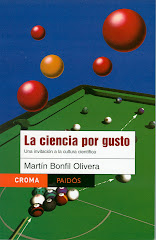by Martín Bonfil Olivera
Published in Milenio Diario, March 11, 2009
 In 2006, in a tour in the Mexican state of Sinaloa, former president Vicente Fox proudly mentioned that seventy-five per cent of the homes in Mexico have a washing machine, "and made of metal, not the kind with two hands and two legs". This injurious phrase showed that the former president's concept of woman reduced to "a person that washes clothes".
In 2006, in a tour in the Mexican state of Sinaloa, former president Vicente Fox proudly mentioned that seventy-five per cent of the homes in Mexico have a washing machine, "and made of metal, not the kind with two hands and two legs". This injurious phrase showed that the former president's concept of woman reduced to "a person that washes clothes".
Last Sunday, International Women's Day, pope Benedict XVI asked for women "to be more respected and valued every day". The same day,
It's true that scientific-technological products –including washing machines, among other domestic without which housework would be worse than it already is– have contributed to diminish social inequality between man and woman (which still persists). What's indignant is to find people that still think that such labors are a natural obligation on women.
But it's undeniable that the fact that women, for the first time in history, are able to reliably control their pregnancies was one of the triggers of the revolution that radically changed their role in society –although, there's still way to go. Chemist Carl Djerassi, one of the fathers of the pill, reflects on these and other social consequences of his invention in his excellent book This man's pill.
On the other hand, science writer Ana María Sánchez Mora , in a penetrating book that should've been named Feminism and science popularization, but because of a bad editorial decision carries the ambiguous name Science and sex (La ciencia y el sexo), explains how science, apart from refuting some beliefs like witchcraft or the biological inferiority of women, of ending women's deaths from puerperal fever and producing the pill, gave women the knowledge and arguments to denounce and fight discrimination and abuses against them.
Science not only makes useful products. It also changes the way we see the world.
(translated by Adrián Robles Benavides)
To receive Science for pleasure weekly
in your email, subscribe here!





No comments:
Post a Comment